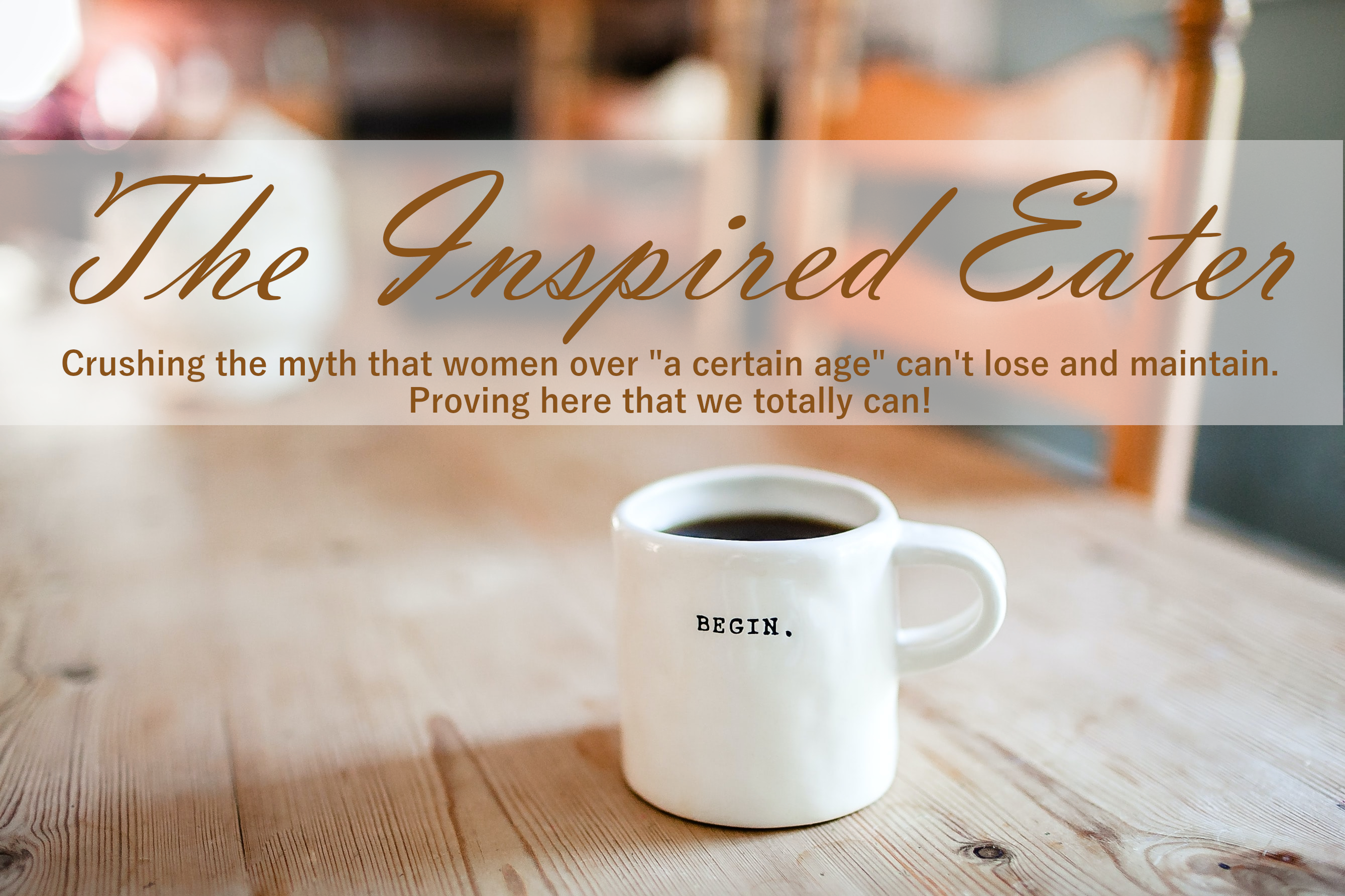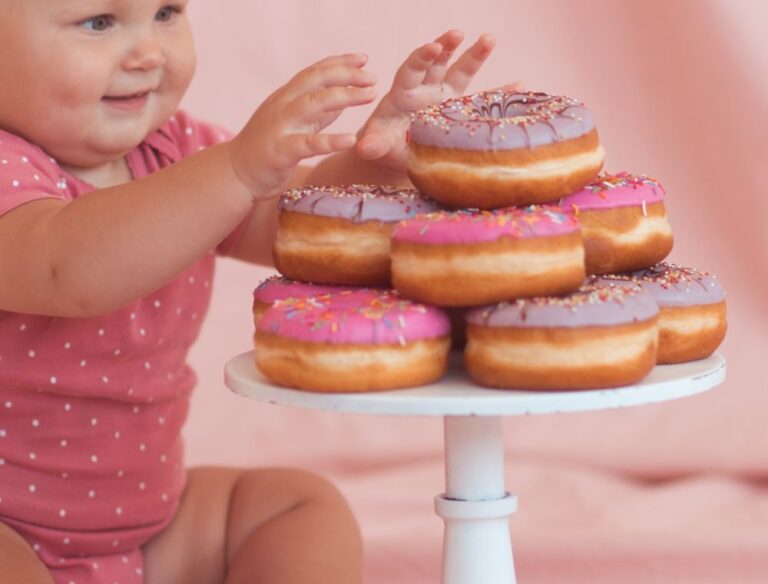Learning how to NOT light-up at a plate of donuts is merely a step to be learned.
A hello and welcome to our new thrivers!! You’ll get the most from the Inspired Eater site if you first read “Aunt Bea.” If you didn’t receive her, just shout! Wendy@theInspiredEater.com. The other essential read is Begin Here. I send out a post every Friday with five “pearls” that solely focuses on women losing weight after 50, 60, 70, and 80+. (“I’ve received a handful of emails from women in their 80’s! One told me that it never ends.”)
Hello to all the Thrivers who’ve taken my words and brought them to life. Putting everything within this website into play is impressive.
Pearl One
As you can probably guess, I lost 55-pounds before the new weight loss medications came out, but let me be upfront: back in the day, I would have been one of the first in line for a med if I’d had the bucks. Same goes for surgery. I’ll add that I was terrified of side-effects. No, not scared of side-effects like a responsible adult would be; I was scared of ouchies in any form.
Surgeries are fine too, but the two I’ve known to have surgery weren’t taught how to maintain their loss and ended up overeating eventually making the surgery null.
The conversation about maintenance – what I call “preservation” – is rarely discussed because nobody really knows how to maintain. I think at most they’ve studied maintenance a year to five years after a participant in a study loses the original weight, but they haven’t gone beyond that.
The only news on the maintenance-front comes down to studies like this one: “in a meta-analysis of 29 long-term weight loss studies, more than half of the lost weight was regained within two years, and by five years more than 80% of lost weight was regained.” (Study here.)
My theory is that to create a successful “forever-loss” for ourselves we essentially need to transform how we engage with food.
The bottom line is that you and I both know how to lose weight, we’ve done it many times throughout the decades. What we really need to learn is how to create a forever-loss.
Can it be done? One new habit at a time, yes. The post I’m linking here talks about giving up sugar, but the method works for any new habit you want to create: pearl one.
I will post more about how-to survive the first difficult days of creating a new habit starting with next week. ♥
Pearl Two
I’ve talked about this reframe before, but if you’re anything like me you need a friendly reminder. This is one of the most powerful reframes that I’ve used 24/7/365. You know how smart eating takes like twenty-five thousand micro-steps? All of the driving and picking up of smart groceries at five different grocery stores; all the measuring, chopping, baking; all of the inevitable swerves into a margarita and chips that “ruined everything” (it didn’t); or into Ben & Jerry’s and everything has “gone wrong” (it hasn’t) while navigating smart eating is supremely difficult? To almost be impossible?
Back when I began my weight loss in earnest – after my “moment of clarity” – I well-knew the massive effort involved with losing and then preserving a forever-loss. It dawned on me one day to call everything involved with weight loss and keeping it off my part-time job.
And bam! a simple title changed everything. What had been annoying jobs squeezed into the cracks of my day, became a supportable part of my life. I can report that there was far less whining and complaining on my part.
When I called it a part-time job, I’d elevated this trek we’re on – losing and preserving after age 50 — from being “a nice thing to do” to one of my highest priorities in life. ♥
Pearl Three
A sequence every week
A sequence from my life:
- Situation (something concrete): my sister and I figured out how to facetime each other so that I can visit with my mom online (new readers: my mom is in the middle stages of Alzheimer’s and both she and my sister live in Tucson. I’m in Atlanta).
- Thought: Fun at first, but then I realized after a moment or two that she didn’t recognize me. Shelby took us on a tour of our mom’s memory care home which I hadn’t yet seen.
- Feeling: So incredibly sad.
- Action: My eyes started to well up in tears. At my tears Shelby started crying. Then we both cry-talked for a minute, then said our goodbyes.
- Result: It was late, I went to sleep feeling down.
New sequence with a chosen thought:
- Situation (something concrete): my sister and I figured out how to facetime each other so that I can visit with my mom online (new readers: my mom is in the middle stages of Alzheimer’s and both she and my sister live in Tucson. I’m in Atlanta).
- Chosen Thought: I’m into wild lions and I watch cute lion-family videos. I don’t watch the gory stuff. After I’d talked to my mom the next morning I wondered, “What happens to old male lions”? Same question for the old females. Trust me, don’t google it). There really is a cycle of life to every creature and while the early and middles of life might be fine, the endings are not always pretty. Everything that’s happening with my parents is just life being life.
- Feeling: Call me crazy, but I feel so much better. By her standards, my mom had a very successful life. Now that she’s at the end of her life, she’s dealing with the difficulty of the dying process that we all go through.
- Action: I plan to Facetime a lot more with my mom and without crying at the end of our talk and upsetting my sister.
- Result: I feel like I’ve had a boost in my emotional-evolution. Children grow into adults and parents pass on (like Jerry Seinfeld says, “They’re here to replace us.”). Dying is just how life works. With that thought I feel better.
- I’ll still well-up in tears when talking with my mom, but the lions helped me feel a little more comforted; a little less anguished. ♥
Pearl Four
Pearl four is an amazing book recommendation; not a review, just an awesome book I want to share
I needed to quickly dip into this book for another reason, but as I read I was pulled back into this amazing story.
The author, a Harvard-trained neuroscientist, had a stroke at the age of thirty-seven. She was just getting out of bed one morning when the stroke hit.
From her background as a scientist, Jill meta-watched her brain deteriorate in real-rime. My Stroke of Insight a brain scientist’s personal journey by Jill Bolte is excellent. (Her Ted Talk is one of the highest rated.)
I’ve written about this book before, and it’s still hard to put down. I stayed up way too late last night reading. ♥
Pearl Five
When scientists analyze people who appear to have tremendous self-control, it turns out those individuals aren’t all that different from those who are struggling. Instead, “disciplined” people are better at structuring their lives in a way that does not require heroic willpower and self-control. In other words, they spend less time in tempting situations.” — James Clear ♥
Give your fur-kids a cuddle for me. My baby passed over two years ago. I’m adjusting, but sometimes it feels like I’ll be sad forever. Thank the Universe that human beings heal.
If you’ve enjoyed this post, I hope you’ll share it with a loved one.
Have a phenomenal weekend!
♥, Wendy
P.S. Are you new to the Inspired Eater? Welcome!! This blog won’t make much sense until you first read the Aunt Bea post (and you’ll find Aunt Bea on this page to the right under my short bio). On your cell you’ll see it immediately following the first post. After you enter your email address, the Aunt Bea article will be sent to your email’s inbox. If it’s not there, you might check the spam folder. And always feel free to email me at Wendy@TheInspiredEater.com and I’ll get Aunt Bea right to you!
You know the scoop: I’m an Amazon affiliate. If you buy from a link in my post, I’ll receive money, but the arrangement won’t cost you a dime.
I am not an expert, a doctor, a surgeon, a nurse or a nutritionist: the information within TheInspiredEater.com is based solely on my personal experience and is not intended to be used as a substitute for professional medical advice, diagnosis, or treatment. ♥


4 Comments
I am very sorry about your mom and your fur baby. I just love the new sequence thoughts that you post each week. They are very helpful. James Clear’s quote is one that I need to memorize and utilize daily.
Thank Cindy. So glad to hear that you like the sequences!
Wendy
Great list and good reminders.
Blessings, Dawn
Thank you, Dawn!